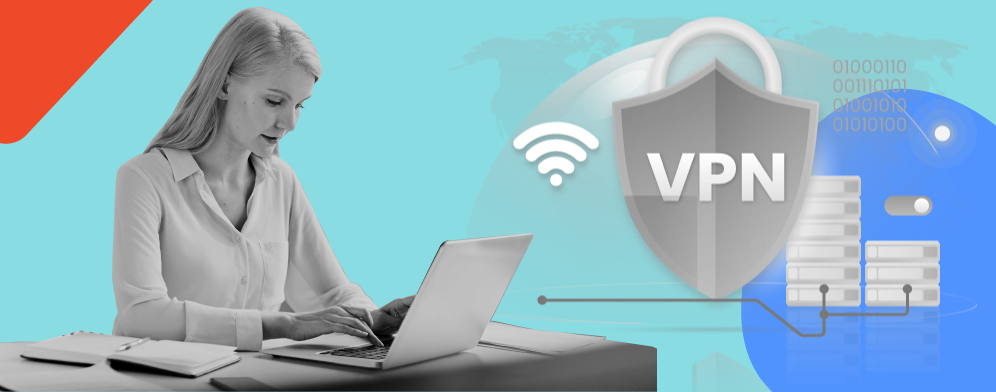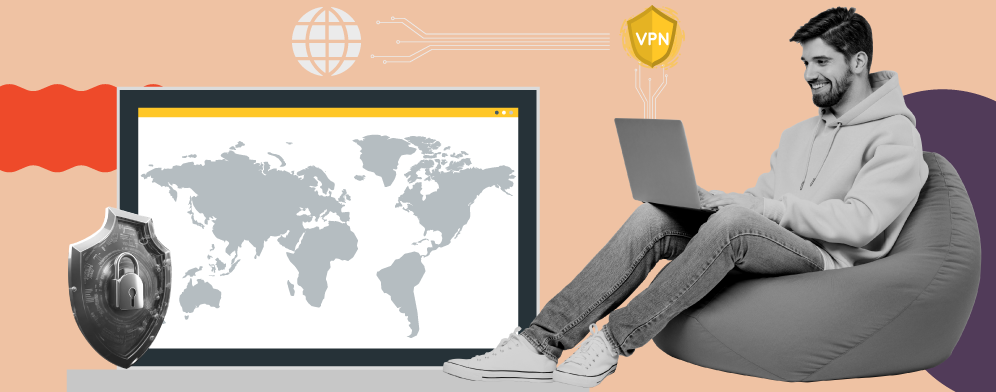1. What is remote access?

Remote access allows you to connect to a different computer or network. Employees may need to frequently use remote computer access to access crucial applications and files on another user’s machine, especially when they don’t work from a physical workplace.
You can remotely monitor, control, and maintain any device connected to the same network. The ability to remotely monitor creates the opportunity for problem-solving remotely on the devices experiencing difficulty.
Accessing vital files remotely without waiting for their delivery by email or other methods is possible. Additionally, you can deploy remote access to specify who can access some files and aggregate users into different groups; you can grant some groups access to particular resources while curtailing the access of other groups.
VPNs can enhance productivity through remote access in several ways. Below are some of the ways VPNs can improve productivity:
1.1. Secure remote access
VPNs provide a secure connection that encrypts data transmitted between the user's device and the remote network. Encryption ensures that hackers or cybercriminals can’t intercept sensitive information.
Even when they intercept your information, it will be worthless to them since they can’t decipher the message. With VPNs, employees can access company files and applications from anywhere without worrying about the security of their data.
1.2. Accessing geo-restricted content

To improve productivity and customer satisfaction, you may need content unavailable in your region or country; VPN services can provide access to content that may be difficult to access from your location. For example, if a user is in a region where Netflix is not available, they can use a VPN to connect to a server in a country where Netflix is available.
Bypassing geo-restriction can be critical to the survival and relevance of businesses that have employees in different parts of the world who need to access region-specific content.
1.3. Improved Collaboration
VPNs can improve collaboration between team members who are working remotely. With VPNs, team members can access shared drives, databases, and other resources in real-time, which has become critical to the relevance and survival in the overwhelmingly competitive global market.
Productivity and customer satisfaction depend on faster communication and collaboration between employees.
1.4. Increased Productivity
VPNs can increase productivity by providing employees access to an organization’s resources and applications worldwide. Remote access means that employees can work remotely without disruptions, which can increase their productivity levels.
Additionally, VPNs will help reduce downtime by providing employees access to technical support and troubleshooting resources.
1.5. Reduction in infrastructural and hardware costs

VPNs can help businesses save money on hardware and infrastructure costs. With VPNs, a business can allow employees to work remotely without investing in expensive hardware or infrastructure.
If you can reduce business costs, it shall benefit your small business that you may lack enough resources to set up a physical workplace.
1.6. Flexibility
With a VPN, employees can work flexibly from anywhere in the world. Flexibility will benefit businesses with employees in different parts of the world who need to collaborate on projects.
VPNs also allow businesses to hire remote workers, which goes a long way to reduce overhead costs.
1.7. Prevention of IPv6 leak
A VPN ensures that your remote team keeps on receiving complete online anonymity. Your VPN must offer IPv6 Leak Protection to secure online traffic from hackers, trackers, and any prying eye.
2. Conclusion
VPNs can enhance productivity through remote access in several ways. They provide secure remote access, access to geo-restricted content, improved collaboration, increased productivity, reduced costs, the evolution of business relationships, and flexibility. With the increasing trend of remote work, VPNs have become an essential tool for businesses that want to ensure the security of their data and improve productivity.
 Interested in Virtual Team Building Events?
Interested in Virtual Team Building Events?





















